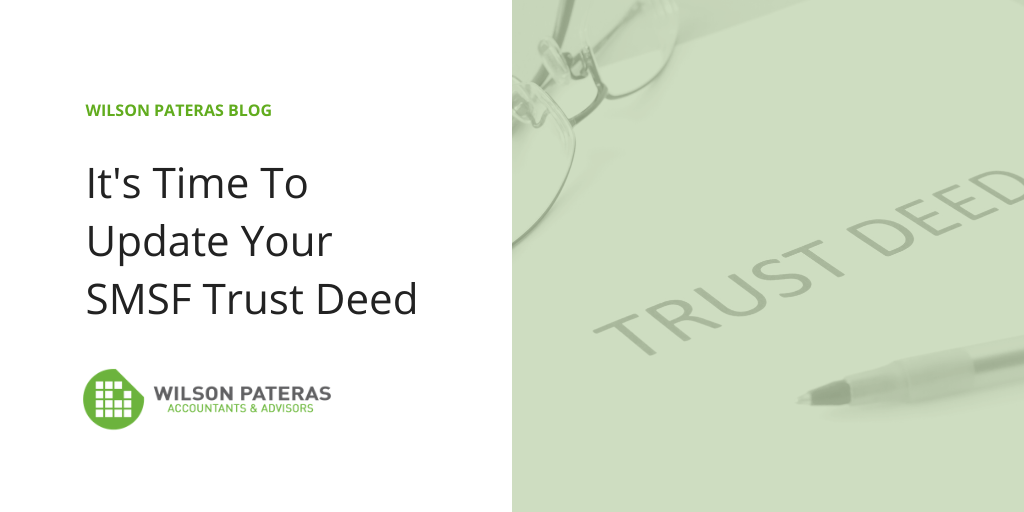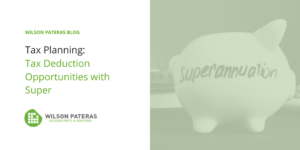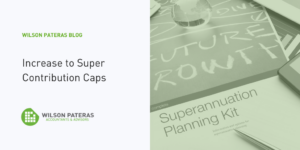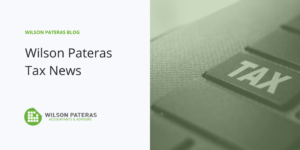
The SMSF Trust Deed is the most important legal document of your fund. It defines how your fund will operate and ensures you remain compliant with Australia’s superannuation legislation.
The Australian superannuation legislation has changed significantly over time, including the most significant package of reform in 2017. This means SMSF Trust Deeds which are dated pre-2017 could contain outdated and irrelevant rules and provisions, making it more restrictive to manage your fund. Ensuring your Trust Deed is up to date is crucial to getting the most out of your SMSF.
Risks of outdated Deeds
If an SMSF has an old Deed with outdated or invalid clauses, trustees could inadvertently act on outdated rules which could in turn risk incurring audit violations which could then lead to an ATO investigation.
Whether you are an individual or a director of the corporate trustee of your SMSF, you are legally responsible for its compliance with Australian superannuation legislation. The Australian Taxation Office can impose penalties for SMSF non-compliance, including requiring the fund to pay more tax, handing out fines, or even potentially ordering that the fund be wound up.
Ultimately, the superannuation legislation regulates how your fund must operate; however, it is your Deed that governs the rules of the fund and determines the overall outcome. Updating your trust Deed ensures that you not only take advantage of the legislative changes that benefit you as a fund member but comply with legislation which continues to evolve.
Key Reasons to update your SMSF Trust Deed
It is important to have an up-to-date Deed that enables you to maximise the benefits of your fund so that you can make flexible decisions, now and in future. Here are some key reasons on why your Deed should be updated:
Update to the Australian superannuation legislations
There have been many legislative and ATO changes made to comply with the SIS Act. The three key updates began in 1999, when it was required that funds classed as ‘Excluded Funds’ had to decide whether they became a ‘Self-Managed Super Fund’.
In 2007, allocated pensions and complying pension conversions (The ‘Simplified Super‘ reforms) were introduced. This included tax free super payments after the age of 60, limitations on contributions and the introduction of the new account-based pension and transition to retirement income stream (TRIS).
The most significant recent package of reforms occurred in 2017, with the introduction of the Treasury Laws Amendment (Fair and Sustainable Superannuation Reforms) Act.
Key aspects of the legislation included the:
- introduction of the transfer balance cap (a limit on the amount of funds that can be transferred into the tax-free retirement phase).
- lowering of the threshold at which high income earners must pay additional contributions tax.
- lowering of the annual non-concessional contributions cap.
- introduction of catch-up (carry forward) concessional contributions.
Operational Structures
There are several other operational structures that your old Deed may not include, such as the ability to:
- Split contributions / spouse contributions to assist in growing or equalising the superannuation balances of the fund’s members
- Commute existing pensions to accumulation phase as may be required
- Identify a Power of Attorney when living overseas for more than 2 years in order that the fund can maintain its residency status
- Segregate assets such as investments between accumulation and pension phases. An example may be that members of the fund can have their own identifiable assets
Trustees may want to consider whether any of the above options should form part of their SMSF Trust Deed.
How your Death Benefit Payments are assigned
Another major reason to update your SMSF Trust Deed is to better manage your benefits when you pass away. If the Trust Deed has not been updated correctly, and unless you specify how you would like your death benefits assigned, either by BDBN or reversionary pensions, there is no guarantee that your fund will end up with your chosen nominees, despite the known plans of the deceased member. For example, your current Deed may require BDBN’s to be renewed every 3 years. Updated Deeds can allow for the non-lapsing BDBN’s, thereby avoiding a potential disaster if a member dies without a renewed BDBN.
There have been several court cases that have resulted in expensive litigations and have resulted in the fund not being met according to the trustees wishes.
Reversionary Beneficiary Pension Restrictions
Reversionary Beneficiary Pensions may also be affected by your Trust Deed. The rules in your Deed may not allow for reversionary pensions or have restrictions around their use. A reversionary pension allows the pension to continue to the nominated beneficiary without the need to stop and recommence a pension and can be a very effective Estate Planning tool (dependent on individual circumstances).
Updating your Deed may give you the ability to initiate Automatic Reversionary Pensions. A lot of Deeds do not have this capability thereby reducing any Estate Planning opportunities that could be explored by a knowledgeable advisor.
When should you update your Deed?
With the extensive number of legislative changes since 2017 and the continual improvement in the superannuation legislation, it is recommended that clients consider at least reviewing their Trust Deed annually and updating them every 3-4 years, particularly for those that are nearing retirement or that are considering any major changes or decisions to their self-managed super fund.
Updating your Deed will give you the confidence to know that your fund does not fall short of your expectations.
How we can help
Our team of SMSF specialists at Wilson Pateras in Melbourne can help you to update your SMSF trust Deed. Contact us today to discuss how we can help.
This article contains general advice only. It does not take into account you, your objectives, financial situation or needs. You should seek advice from a financial planner, accountant or other professional adviser before making any financial decision based on this information. Liability limited by a scheme approved under Professional Standards Legislation, other than for the acts or omissions of financial services licensees.





